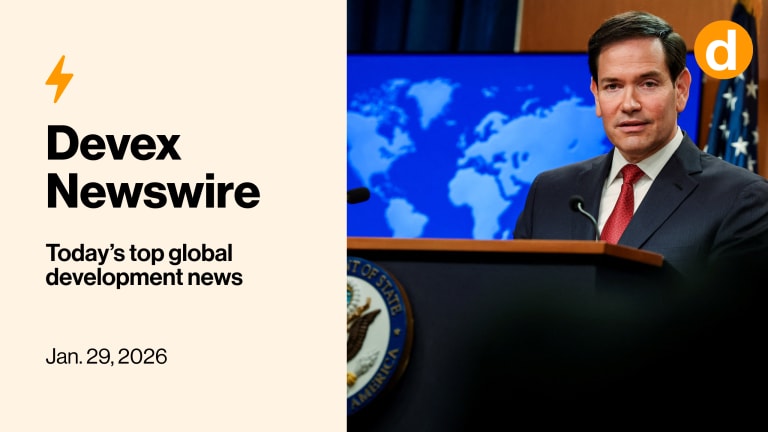
While Washington debates whether to cut off funding to Egypt’s military, some experts argue that now is the pivotal time for the United States to reshape an out-of-date aid program and boost foreign assistance to the country’s floundering economy.
The U.S.-Egyptian relationship, generally strained, has been a “casualty” of the events surrounding President Mohammed Morsi’s removal from power. Preventing that relationship from becoming a “fatality” will require American policy and public discourse to rise to the occasion in a way that it has so far failed to do, said Karim Haggag, visiting faculty at the National Defense University and career Egyptian diplomat, at the Center for National Policy on Wednesday.
With a $12 billion economic relief package committed this week by a trio of wealthy Arab nations — Saudi Arabia, the United Arab Emirates and Kuwait — some analysts say the United States appears decreasingly relevant in a country on whom it relies desperately to uphold regional stability in the Middle East.
At the same time, other observers, especially in Egypt, view U.S. democracy assistance efforts with skepticism, judging them to be covert and politically manipulative.
From an Egyptian perspective, Haggag explained, the relationship between the United States and Egypt has been one of patron and client, with the former using military aid to buy regional security instead of fostering a real partnership between the two nations.
That sort of engagement stands in stark contrast to the bilateral donors’ growing emphasis on fostering equal partnerships with aid recipients, a notion that was also evident during high-profile visits to India by U.S. Secretary of State John Kerry and to three African nations by President Barack Obama.
Haggag characterized Washington’s Egypt approach not as a policy error, but as an “abdication of policy” and suggested that when it comes to engagement with Egypt, the U.S. is “always behind the curve.”
“It is certainly my hope that the U.S. approach begins to take on a more strategic dimension that addresses the implications of what we’re seeing and can hopefully have a stake in the success of what we’re seeing,” he said.
Outdated policy
Formulating a clear, far-sighted policy in the midst of tremendous, sometimes violent, and certainly unpredictable upheaval is no small order.
The U.S. government does seem to be weighing its options with regard to whether or not to suspend Egyptian aid in the wake of the military takeover with a view towards maintaining a relationship — however damaged — with the uncomfortable ally.
That said, some feel a long-term strategy targeting a more stable partnership will require the United States to reshape its “out-of-date” foreign assistance relationship with Egypt. To do this, said Amy Hawthorne, resident senior fellow at the Atlantic Council, Washington must to a better job of aligning its interest in regional security with its interest in Egypt’s democratization.
“Egypt can’t be a moderating and positive force in the Middle East if it doesn’t democratize,” said Hawthorne.
But U.S. initiative alone will not be enough to build momentum on civil society cooperation, a likely foundation of any democratic assistance efforts, since Egypt’s draconian NGO laws allow the government to shut down unfavorable organizations and prohibit others from receiving funding. Grassroots partnerships among civil society actors in the U.S. and Egypt will require lobbying on both sides to overcome both Egypt’s lack of civil society freedom and suspicions of foreign meddling.
It will need for the two countries to find common ground other than through phone calls between high-level military officials and diplomats. Hawthorne noted that to date, relations between Egypt and the United States have been entirely government-to-government, with little room to develop the nongovernmental and business partnerships that can provide an off-ramp to sustainable engagement.
With Egypt’s economy in dire straits — the International Monetary Fund has reduced its growth projections for Egypt from 5 percent to 1 percent next year, tourism has plummeted, and the country is suffering from inflation — international businesses see little incentive to build a foundation for long-term investment.
For now, said Hawthorne, the relationship between the Egyptian people and the American people remains “extremely underdeveloped.” Egypt’s youthful population sees little by way of positive American business influence to counterbalance widespread and growing distrust of the U.S. government.
Lifeline from Gulf neighbors
In the midst of potential economic collapse, wealthy Arab neighbors stepped in this week with a $12 billion relief package. The assistance offers a combination of cash and grants, mainly to replenish Egypt’s foreign reserves, as well as oil and oil products, to stave off dramatic price spikes.
There is not much appetite on Capitol Hill for any similar foreign aid package to Egypt, especially considering the many voices calling for an outright suspension of assistance in the wake of a military takeover, though some analysts suggest the Obama administration would do better to make the case that Egypt’s current economic crisis constitutes the largest current threat to stability in the region, and to ramp up assistance accordingly.
“Sometimes, when an administration wants to do something, they put a full-court press on it,” said Gregory Aftandilian, senior fellow for the Middle East at the Center for National Policy. “We haven’t seen that level of engagement.”
But even if the U.S. government were to throw its weight behind an aid package that saw the prevention of economic collapse in Egypt as a top priority, it may not stave off widespread skepticism among Egyptians who have been critical of Washington’s role in the Middle East, including both supporters and opponents of former Egyptian President Mohammed Morsi who each believe the United States actively conspired against them.
That sentiment will be even harder to shake after the release of research by University of Berkeley researchers, picked up by the Al Jazeera news network earlier this week, which claimed the United States “quietly funded senior Egyptian opposition figures who called for toppling of the country’s now-deposed president,” under the umbrella of “democracy assistance” programs.
Meanwhile, the current debate in Washington over whether or not to label the recent military and civilian uprising as a coup “grossly oversimplifies” the importance of what is taking place, said Haggag.
Egyptians have been “surprised” to see that Washington has reduced to a “technicality” a movement that saw 25-30 million Egyptians take to the streets to demand an electoral solution to what many of them perceive as Morsi’s inept majority rule, he said.
Grossly oversimplified or not, the chorus for aid suspension is gaining traction.
Rand Paul, the Republican senator from Kentucky, has introduced a bill “to prohibit the United States from sending foreign assistance to the government of Egypt,” and the Obama administration has announced that Egyptian aid is “formally under review.”
That review will present a chance for the administration to retool and salvage its relationship with Egypt before it deteriorates further.
Join the Devex communityand gain access to more in-depth analysis, breaking news and business advice — and a host of other services — on international development, humanitarian aid and global health.
Read more:








